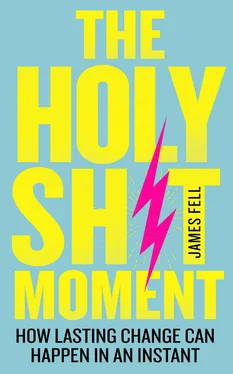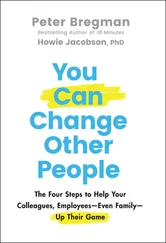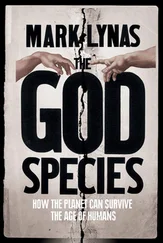I want to help you get there, to reach the point where a new sense of purpose awakens and your unstoppable will is unleashed. To do that, you need to understand the phenomenon of sudden transformation, so you can open yourself to possibility.
For Lesley, in that single moment of fencing practice, when she felt her sense of belonging and purpose awaken, her life altered course and gave her the power to keep altering it. This is the secret so many who change their bodies, break addiction, and achieve success and happiness often miss: To change their lives, they first must change their sense of who they are. The concept of shifting one’s identity is a recurring theme in The Holy Sh!t Moment, because that’s what epiphany does: it doesn’t change behaviors, it changes you.
The traditional methods of behavior change preach the tortoise approach over that of the hare, but there is a problem with that story: The hare in Aesop’s fable was an idiot. If he’d been smart, he would have kicked that reptile’s ass.
When it comes to changing who you are, sometimes it’s better to be a hare. It is an amazing thing to experience a potent, emotional event that shocks you into clarity of purpose. Besides, baby steps are lame. Why slowly build a bridge across that chasm when you have the power to leap to the other side?
This instant transformation of will seems magical. But sometimes you must meet the magic moment partway.
I had a life-changing epiphany that arrived out of nowhere, and it spurred me to action, to go from flunking my courses to acing them, as well as to getting out of debt. That accomplished, I tackled my physique next, and that part was, shall we say, less inspired for a time.
I had to do the traditional baby steps. I had to be the tortoise. I had to slog.
But not for long. My mind had learned to recognize epiphany. Over the course of two months, my attitude shifted from “This sucks” to “This isn’t completely horrible.” And realizing that regular exercise no longer felt like a soul-destroying endeavor initiated a massive and rapid transformation of mind-set. I put in some hours and met the magic moment along the way.
As did Lesley. Remember, her life-changing epiphany didn’t happen the first time she held a blade. It took a couple of months of parries and ripostes to awaken a sudden and total transformation into who she was meant to be.
You will read of others in this book who did not have to meet epiphany partway. Lightning struck out of nowhere, and they were inspired from day one. That totally happens, and I hope it happens for you. But if it doesn’t, you’re going to have to be ready to do some uninspired work while keeping your brain attuned to receiving inspiration. In coming chapters, I’ll offer advice on using traditional methods of step-by-step behavior change to help generate a sudden leap forward.
There are myriad methods of rapid and significant life change, but all such roads share one undeniable characteristic: a deep emotional sensation that carves a new sense of purpose into a person’s being, like a chisel working on stone. Conversely, the traditional (read: boring) models of gradual, step-by-step cognitive behavior change seem to be lacking in their ability to create passionate adherence. Resultantly, such laborious methods of struggling to develop new habits may not be the most effective way of achieving change.
Sometimes dramatic lifestyle change “just happens” because of reaching enlightenment that arrives beyond cognition. Again, this is not a decision; it is an awakening. Such an awakening inspires one’s determination and dedication to succeed.
Sometimes Santa Claus does exist, and he brings you a gift of overwhelming passion to kick ass at life.
And such sudden change is a scientifically explainable phenomenon one can pursue with purpose, leaving less to random chance, to create a better life. This book is about providing you with actionable tasks that help set the stage for a specific moment: that space in time when something so vital and important takes place inside the mind that your life is divided into “old you” and “new, righteous, unstoppable you.”
It’s the moment the grizzly is released from its cage. Suddenly free, the massive beast looks you in the eye, tilts its head back toward its massively muscled back, and says, “Hop aboard, kid. You and I are going places.”
What Is an Epiphany?
I have a couple of master’s degrees and am a stickler for the science. This book includes references to reams of peer-reviewed journals alongside exclusive interviews with some of the most renowned experts in behavior change on the planet.
That’s why it pains me to use Wikipedia as a reference.
From the ancient Greek epiphaneia, meaning “manifestation, striking appearance,” an epiphany is often described as a scientific breakthrough, or religious or philosophical enlightenment. However, it can represent myriad situations in which deeper understanding is suddenly attained.
The apocryphal story of an alleged apple falling and allegedly hitting Sir Isaac Newton on the head describes when he allegedly had an epiphany about the nature of gravity. Alas, this is not how innovation and technological advancement work.
In his book The Myths of Innovation, author Scott Berkun’s first chapter is titled “The Myth of Epiphany.” In it, he describes the story of Newton and the apple to debunk the popular understanding of epiphany. The author then quotes the primary inventor of the laser, Gordon Gould, to provide an example of how scientific advancement usually works.
In the middle of one Saturday night … the whole thing … suddenly popped into my head and I saw how to build the laser … but that flash of insight required the 20 years of work I had done in physics and optics to put all the bricks of that invention in there.
A pot-smoking teenager watching SpongeBob SquarePants in his parent’s basement isn’t likely to have a stroke of brilliance regarding the nature of light amplification. Gould, a renowned physicist who had worked on the development of the first atomic bomb, spent twenty years of toil working to resolve an enigma, and when enlightenment was finally achieved, some would refer to that as an epiphany. But it is no such thing. It is simply that last piece of the puzzle—a puzzle he’d been working on for decades—being put into place.
Human behavior can work in similar ways. One may have been debating, mulling over, and gathering information about a new path for years, and a life-changing event—that triggering moment—is the final illumination before they are ready to make that sudden switch from unconsciously “thinking about it,” to an instant and wholehearted This is happening!
Conversely, it truly can strike out of nowhere, because decisive behavioral change is not often the same as building a laser or theorizing gravity. It can be as simple as hearing an old song on the radio. You may be driving along, listening to the classic rock station, and Van Halen’s 1992 hit “Right Now” comes on and you feel it; you realize it is indeed your tomorrow, and you decide to catch the magic moment. Such a phenomenon can reshape your sense of being and purpose in life in a near instantaneous wave of emotion that provides you with new insight and motivation regarding the way forward.
Lesley Chapman didn’t dwell on what was wrong with her life or how to change it until that singular moment when she discovered what it was like to feel something right.
For some, they need to hit rock bottom before they’re ready to leap toward the light. You don’t need to be that desperate, but you’re reading this because you know that change—be it moderate or massive—is something you desire. If you feel dramatic change is something you must achieve, then you also need to seek out a transformative moment to initiate such change.
Читать дальше












